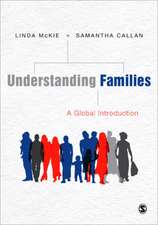Fathers and Divorce
Autor Terry J. Arendellen Limba Engleză Paperback – 19 apr 1995
Preț: 718.82 lei
Preț vechi: 876.60 lei
-18% Nou
Puncte Express: 1078
Preț estimativ în valută:
137.67€ • 141.84$ • 115.32£
137.67€ • 141.84$ • 115.32£
Carte tipărită la comandă
Livrare economică 22 februarie-08 martie
Preluare comenzi: 021 569.72.76
Specificații
ISBN-13: 9780803971899
ISBN-10: 0803971893
Pagini: 315
Dimensiuni: 152 x 228 x 20 mm
Greutate: 0.5 kg
Ediția:1
Editura: SAGE Publications
Colecția Sage Publications, Inc
Locul publicării:Thousand Oaks, United States
ISBN-10: 0803971893
Pagini: 315
Dimensiuni: 152 x 228 x 20 mm
Greutate: 0.5 kg
Ediția:1
Editura: SAGE Publications
Colecția Sage Publications, Inc
Locul publicării:Thousand Oaks, United States
Cuprins
PART ONE: DIVORCE IN CONTEMPORARY AMERICA
Men and Divorce
Unanswered Questions
At the Crossroads of Family and Gender
Divorce in Context
PART TWO: DIVORCE INJUSTICE
A Masculinist Discourse of Divorce
The Law and 'Miscarriages of Justice'
PART THREE: THE MAJORITY STORY: CONVENTIONAL RESPONSES
Former Spousal Relations
'War without End'
Traditionalist Fathers
Disengagement and Absence
Neo-Traditionalist Fathers
Shifting Priorities
PART FOUR: THE MINORITY STORY: INNOVATIVE RESPONSES
Parenting Partnerships with Former Wives
Innovative, Nurturing Fathers
Making Progress, Making Policies
Men and Divorce
Unanswered Questions
At the Crossroads of Family and Gender
Divorce in Context
PART TWO: DIVORCE INJUSTICE
A Masculinist Discourse of Divorce
The Law and 'Miscarriages of Justice'
PART THREE: THE MAJORITY STORY: CONVENTIONAL RESPONSES
Former Spousal Relations
'War without End'
Traditionalist Fathers
Disengagement and Absence
Neo-Traditionalist Fathers
Shifting Priorities
PART FOUR: THE MINORITY STORY: INNOVATIVE RESPONSES
Parenting Partnerships with Former Wives
Innovative, Nurturing Fathers
Making Progress, Making Policies
Descriere
In this ethnographic study, Terry Arendell gives voice to a group of divorced fathers on topics including: their rights as fathers; their relationship with former spouses; the injustices perpetrated by the ex-spouse and the legal system; the inherent differences between men and women; and the fractured nature of the post-divorce family. The author differentiates between
the strategies adopted by traditionalist divorced fathers and innovative ones, and suggests policy recommendations informed by this masculinist discourse.









